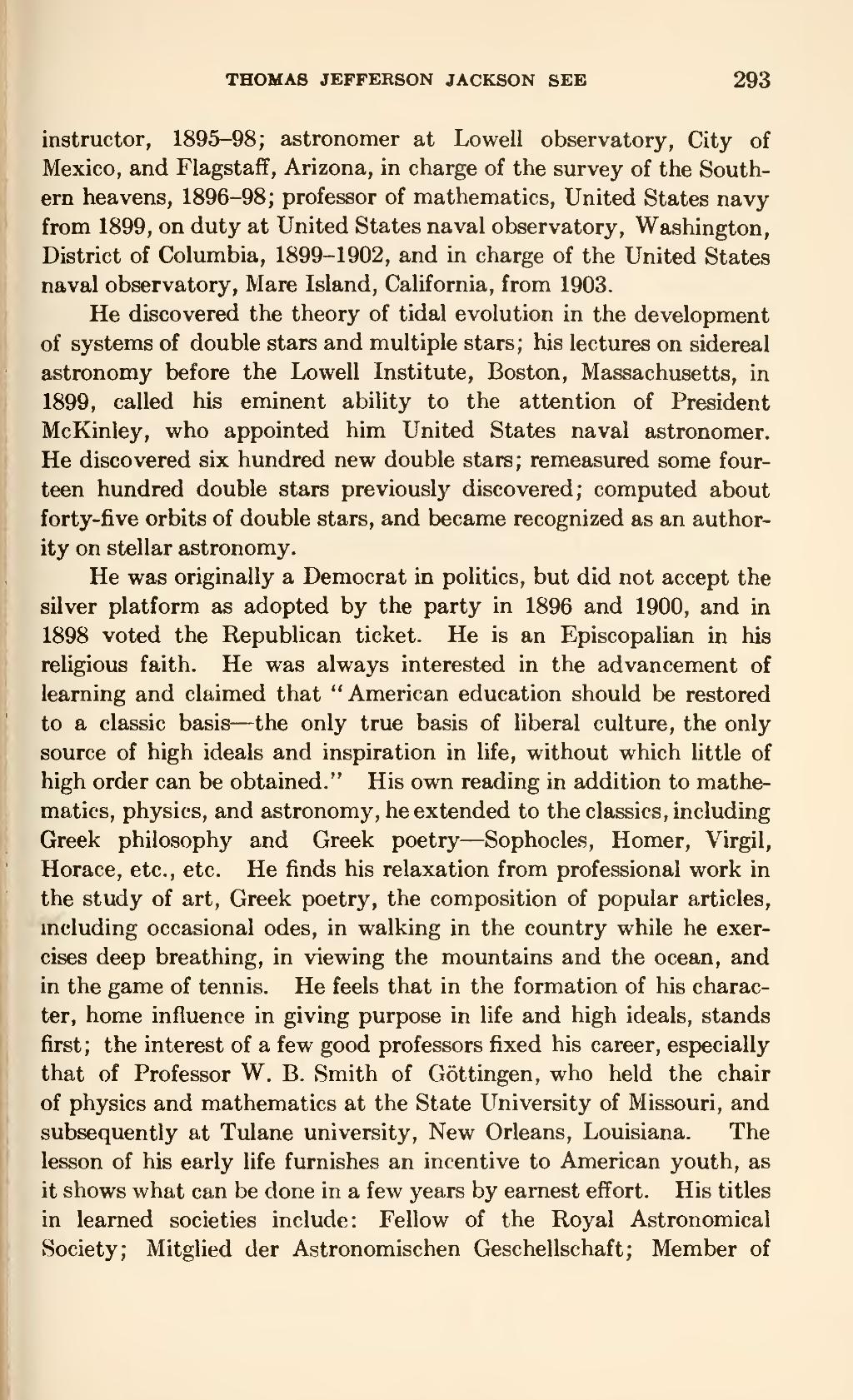instructor, 1895-98; astronomer at Lowell observatory, City of Mexico, and Flagstaff, Arizona, in charge of the survey of the Southern heavens, 1896-98; professor of mathematics, United States navy from 1899, on duty at United States naval observatory, Washington, District of Columbia, 1899-1902, and in charge of the United States naval observatory, Mare Island, California, from 1903. He discovered the theory of tidal evolution in the development of systems of double stars and multiple stars; his lectures on sidereal astronomy before the Lowell Institute, Boston, Massachusetts, in 1899, called his eminent ability to the attention of President McKinley, who appointed him United States naval astronomer.
He discovered six hundred new double stars; remeasured some fourteen hundred double stars previously discovered; computed about forty-five orbits of double stars, and became recognized as an authority on stellar astronomy.
He was originally a Democrat in politics, but did not accept the silver platform as adopted by the party in 1896 and 1900, and in 1898 voted the Republican ticket. He is an Episcopalian in his religious faith. He was always interested in the advancement of learning and claimed that "American education should be restored to a classic basis— the only true basis of liberal culture, the only source of high ideals and inspiration in life, without which little of high order can be obtained." His own reading in addition to mathematics, physics, and astronomy, he extended to the classics, including Greek philosophy and Greek poetry—Sophocles, Homer, Virgil, Horace, etc., etc. He finds his relaxation from professional work in the study of art, Greek poetry, the composition of popular articles, including occasional odes, in walking in the country while he exercises deep breathing, in viewing the mountains and the ocean, and in the game of tennis. He feels that in the formation of his character, home influence in giving purpose in life and high ideals, stands first; the interest of a few good professors fixed his career, especially that of Professor W. B. Smith of Gottingen, who held the chair of physics and mathematics at the State University of Missouri, and subsequently at Tulane university, New Orleans, Louisiana. The lesson of his early life furnishes an incentive to American youth, as it shows what can be done in a few years by earnest effort. His titles in learned societies include: Fellow of the Royal Astronomical Society; Mitglied der Astronomischen Geschellschaft; Member of
